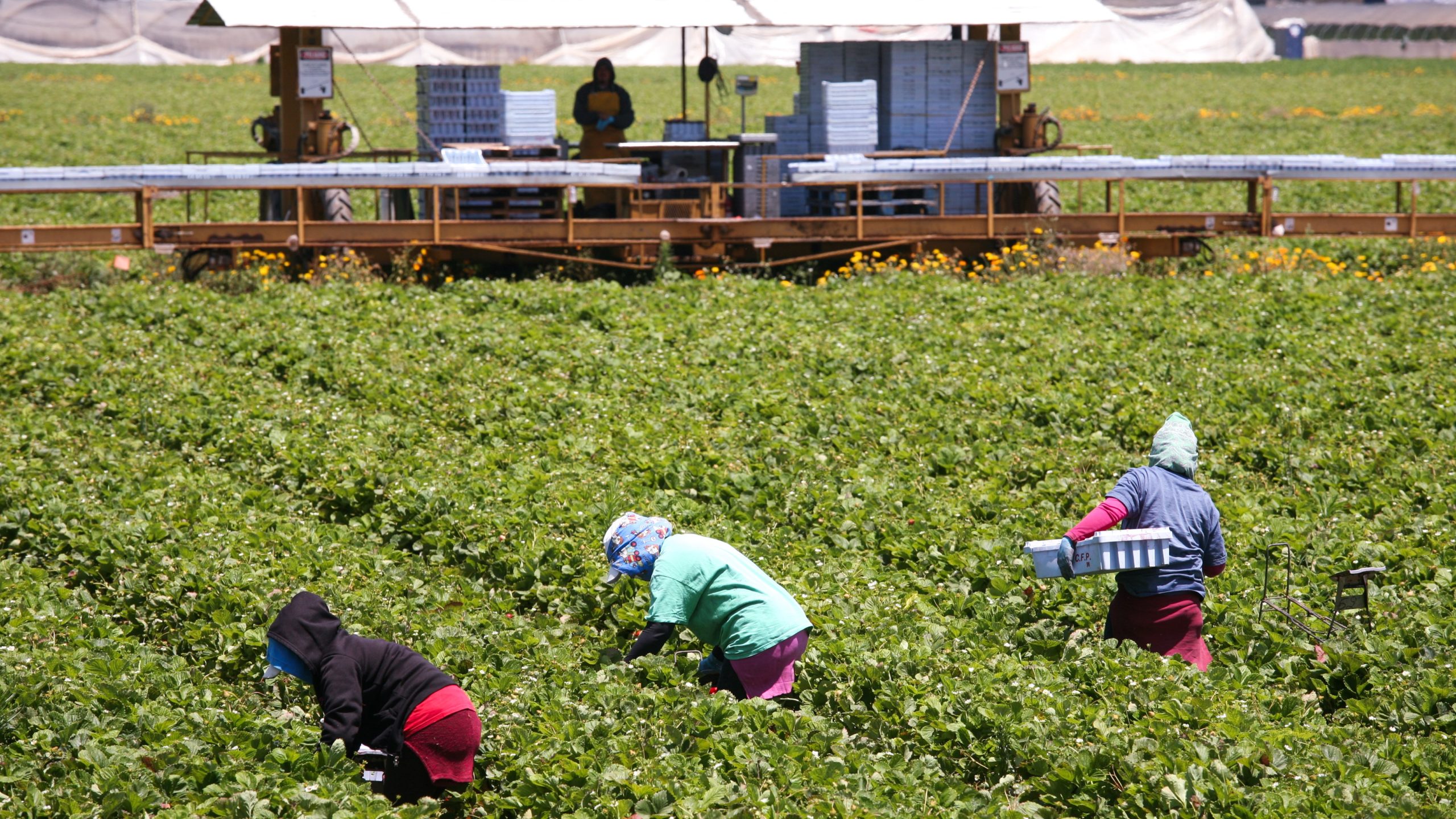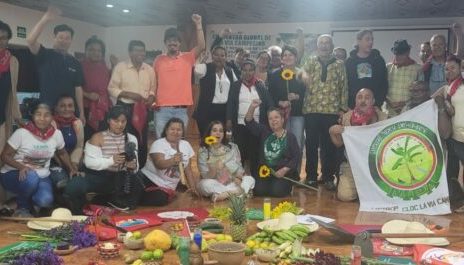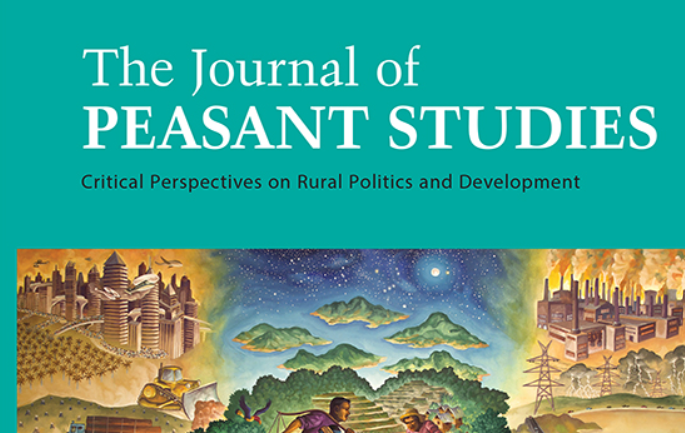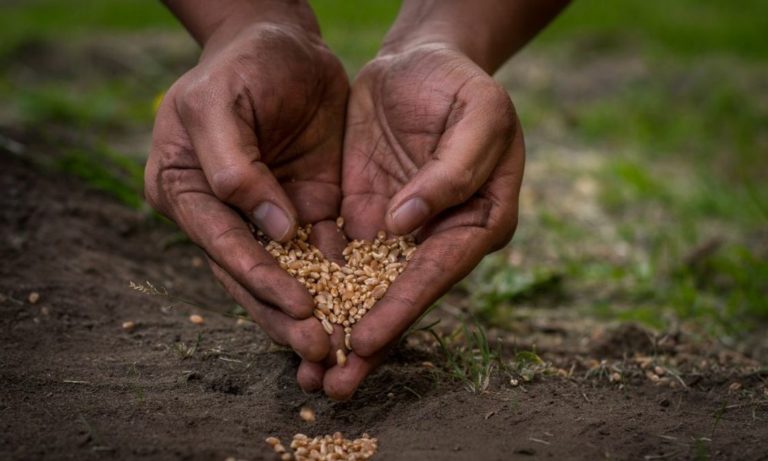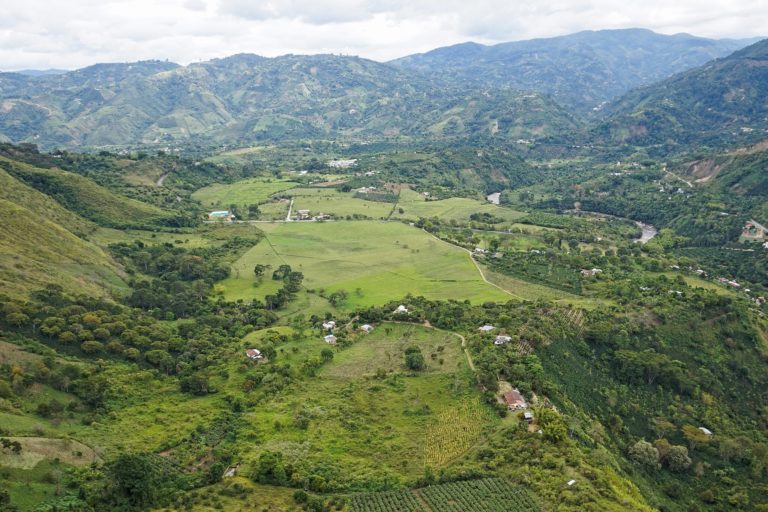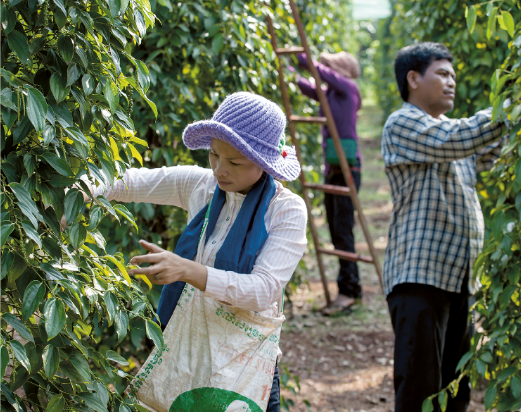The UNDROP from the workers perspective
Introduction
The UN Declaration on the Rights of Peasants and Other People Working in Rural Areas is often abbreviated to the Declaration of the Rights of Peasants, yet it would be a disservice to the Declaration to overlook the other groups it protects. This article will focus on one such group of people who also benefit from the rights contained in the UNDROP: rural workers.
Article 1 of UNDROP in its third paragraph defines and recognizes this particular group: “The present Declaration further applies to hired workers, including all migrant workers regardless of their migration status, and seasonal workers, on plantations, agricultural farms, forests and farms in aquaculture and in agro -industrial enterprises.”
This definition gives two criteria for benefiting from these rights: being a wage-earner and working in an economic activity linked to agriculture. We would stress the importance of including migrants and seasonal workers, two particularly vulnerable categories.
Agricultural workers, as defined by UNDROP, are a particularly broad and diverse group, and their inclusion could be questioned. But the Declaration is precisely intended to cover all vulnerable people who share the status of food producers. Yet there are few situations where these workers are not financially and legally precarious, often paid at the legal minimum with precarious contracts, when they do have a contract.
Restoring rights to these workers is necessary to ensure a just food system for all those who contribute to it, for how can it be transformed without first recognizing and protecting those who contribute most to it? UNDROP is never more interesting and powerful than when we understand that it embraces rurality and food production as a whole requiring specific attention and transformation – through human rights.
We propose here a reading of the Declaration to highlight the rights most relevant to workers, with a focus on articles 13 and 14, which are specifically addressed to workers.
Article 13: The right to work
The right to work enshrined in Article 13 of UNDROP can be broken down into two parts: the first concerns employment, the second the protection of workers. Article 13 opens with a definition of the right to work as the freedom to choose how to earn a living, i.e. one’s job. This freedom is linked to the right to be protected from forced labor and indecent working conditions.
“Peasants and other people working in rural areas have the right to work, which includes the right to choose freely the way they earn their living.” Art.13§1
Having a employment to live on
The freedom to choose agricultural employment as a means of earning a living is an embodiment of the Declaration’s fundamental aim: that people working to produce food for the people should be able to continue doing so. But for this to happen, there must be jobs that make it possible to earn a living, which is why paragraphs 3 and 4 of article 13 respectively oblige States to create an environment favorable to agricultural employment and to develop food systems that create jobs.
The environment referred to in paragraph 3 can be broadly understood as all the circumstances that make it possible to develop and maintain jobs in agricultural production. This can include the legal, economic, financial and technical environment, with each specific situation calling for a corresponding environment. This obligation can also be understood as removing obstacles and creating incentives for the creation of sufficiently remunerative rural jobs.
Paragraph 4, on the other hand, calls for a more comprehensive and in-depth approach, to the extent that it is only made compulsory for States “facing high levels of rural poverty and in the absence of employment opportunities in other sectors”. This condition should not be read as overly restrictive, especially as rural areas are among the poorest in most countries. Once this condition has been established, States are called upon to “establish and promote sustainable food systems that are sufficiently labour-intensive to contribute to the creation of decent employment”. Note the specifics given by this paragraph to define these food systems: sustainable and labor-intensive. The aim is to create jobs over the long term. This sustainability can also be understood in the sense of sustainable agriculture, i.e. agriculture that respects natural cycles, with low levels of mechanization and synthetic inputs, offset by higher levels of labor intensity, which may be close to the agroecological model advocated by La Via Campesina.
Protection from coercion
The second component of the right to work is the right to be protected from work that violates workers’ human rights.
Paragraph 2 begins by recalling the specific right of children to be protected from work that is harmful to them. The terms of article 32§1 of the International Convention on the Rights of the Child are used here: “all work which is likely to be hazardous or to interfere with the child’s education, or to be harmful to the child’s health or physical, mental, spiritual, moral or social development”. According to UNICEF, 112 million children work in the agricultural sector.
This protection then appears for adults in §5 of our article, which stipulates that States have the obligation to ensure the proper application of labor laws, inter alia through the action of a labor inspectorate. This specific reference to the labor inspection is directly inspired by ILO Convention no. 129. Employment in the agricultural and agri-food sector often relies on a precarious workforce, subject to employment and working conditions that are sometimes illegal, and only close monitoring by the State, and therefore investment in labor inspection institutions, can put a stop to such practices.
Finally, paragraph 6 deals with the most serious cases: “No one shall be required to perform forced, bonded or compulsory labor, or be at risk of becoming a victim of trafficking in persons, or be subjected to any other form of contemporary slavery”. As we have said, agriculture is an economic sector that often relies on a precarious and vulnerable workforce, which can therefore be exploited in the worst possible way. This right is based on Article 8 of the International Covenant on Civil and Political Rights.
The right to work as recognized in UNDROP can be a powerful lever for workers’ rights organizations. It is directly inspired by well-established international standards, and complements international law to protect a specifically vulnerable population. Agriculture is still a very large sector of wage employment, particularly in the agri-food industry, and Article 13 concerns millions of people whose rights must be protected as a matter of urgency. What’s more, the transformation of this sector towards a model that is sustainable and compatible with the environment, and thus away from industry, must be achieved with the workers, by recognizing their rights more and more, and not against them.
Article 14: The right to a safe and healthy working environment
Article 14 is an extension of the right to work, providing a framework for working conditions. Article 13 guarantees decent employment, freely chosen and permitting an adequate standard of living, while article 14 ensures that such employment does not endanger workers.
Article 14 is first and foremost a transposition for the agricultural sector of the right recognized in article 7 of the International Covenant on Economic, Social and Cultural Rights: “to the enjoyment of just and favorable conditions of work which ensure, in particular: […] (b) Safe and healthy working conditions”. On the basis of this right, the article goes into detail on the protections that workers must enjoy, and the obligations incumbent on States in this respect. The details of Article 14 are largely inspired by ILO Convention 184 on safety and health in agriculture.
A right for all workers
It is important to stress that the first paragraph of the article reiterates who are the beneficiaries of its content: “Peasants and other people working in rural areas, irrespective of whether they
are temporary, seasonal or migrant worker”. As in Article 1 of the UNDROP, the status of the worker is no obstacle to the recognition and protection of these rights, and we also recall that paragraph 3 of Article 1 makes no distinction between migratory statuses. This is all the more important when we consider the prevalence of these “temporary, seasonal or migrant” workers, including undocumented workers, in the most dangerous jobs in agriculture.
Rights to protect health and safety at work
The first paragraph of article 14 sets out in detail “the right to work in conditions which safeguard their safety and health”, which implies the following rights:
- participation in the application and review of health and safety measures
- the choice of representatives specifically concerned with the subject
- prevention, reduction and control of risks
- access to protective equipment
- safety information and training
The paragraph concludes with the right to be free from violence and harassment, including sexual harassment, and the right to be free from reprisals in the event of reporting or refusing to work in proven dangerous conditions. It was particularly important to conclude this list with these two rights. Firstly, because violence prevents the use and protection of rights, especially reprisals. It is violence that allows the creation and perpetuation of risky and dangerous situations for workers.
The reference to sexual violence and harassment is also worth noting. Some agricultural sectors specifically employ women, for example in repetitive and delicate harvesting work. This work, by its very nature seasonal and therefore precarious, leads to greater vulnerability to violence, particularly sexual violence.
To respond to and implement these rights, Article 14 sets out a number of obligations for States in paragraph 3. The paragraph begins by laying down a general obligation for States to take appropriate measures to guarantee health and safety. It then lays down specific means of ensuring this: principally the designation of competent authorities, not only for implementation, but also for monitoring and sanctioning failure to apply the framework for worker protection.
Protection specific to agrochemicals
Among the risks incurred by agricultural workers, Article 14 focuses particularly on those linked to the chemicals used in agriculture.
First of all, workers have the right, set out in paragraph 2, “not to use or be exposed to dangerous substances or toxic chemicals, in particular agrochemicals or agricultural or industrial pollutants”. This right is also linked to the first paragraph, which gives workers the right to refuse dangerous working conditions, and to denounce the use of proven dangerous products.
This right carries with it obligations for States. These are set out in paragraph 4 of the article. The first obligation is to prevent risks, and this prevention can go as far as restricting or banning certain products. The other obligations cover the entire life cycle of products, from manufacture to use and disposal. The last obligation no longer concerns farmers or workers, but the general public. States have an obligation to educate and raise awareness of the risks posed by these products to health and the environment, and of alternative solutions.
With this focus on chemical products, we are once again defending a peasant agriculture based on practices that are respectful of the environment and people.
Conclusion
Other rights can be read from the specific point of view of workers. In a linear reading of the Declaration, we find first civil and political rights, then economic and social rights.
Among the former, we can focus on paragraph 2.i of article 4, on the rights of rural women, which deals with the issue of work: “To decent employment, equal remuneration and social protection benefits, and to have access to income-generating activities”. Women’s access to work and to decent pay equal to that of men remains a battle far from over.
Then we must mention Articles 8 on freedom of thought, opinion and expression, and 9 on freedom of association. These rights relate directly to trade union freedoms, which are particularly important for the organization of the defense of workers’ rights.
As far as economic and social rights are concerned, many are of great importance to workers. For example, the right to social security (Article 22), which includes coverage for work-related accidents, loss of employment and retirement. But also the right to health (art. 23), which is intrinsically linked to the right to a healthy working environment and to care for work-related health.
The right to food (art. 15), housing (art. 24) and water and sanitation (art. 21), which are rights that meet basic needs, are often flouted by employers of agricultural workers. Agricultural workers, especially seasonal ones, are sometimes entirely dependent on their employers to meet these needs, and therefore to ensure that these rights are respected. The articles devoted to them in UNDROP take up rights already recognized internationally and adapt them to the specific conditions of rural workers.
All the articles in the Declaration refer to peasants and people working in rural areas, so all these rights are always those of workers. The model of the peasant working his land alone, or with his family, is not the only one prevalent in the countryside, and the aim of the Declaration is not to make it hegemonic. Agricultural workers are present throughout the food production chain, and are an indispensable link in its transformation. Guaranteeing them increased rights through UNDROP means enabling a transformation from within, towards new forms of work in the service of feeding the population and dignity at work.

